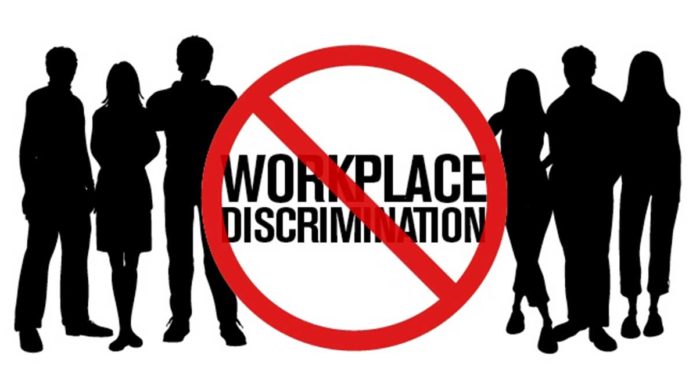Against the backdrop of a public health and economic crisis that is crippling the livelihood of LGBT Americans, another potential labor catastrophe is looming. As early as this week, the Supreme Court of the United States will offer its decisions on two profound challenges to Title VII of the Civil Rights Act of 1964, which prohibits workplace discrimination on the basis of sex. Bostock v. Clayton County, Georgia (and the consolidated case, Altitude Express Inc. v. Zarda) asks whether discrimination against an employee because of their sexual orientation constitutes prohibited employment discrimination under the current federal statute. Meanwhile, R.G. & G.R. Harris Funeral Homes Inc. v. Equal Employment Opportunity Commission asks whether federal law prohibits employment discrimination against transgender individuals.
Currently, there are 27 states, including Pennsylvania, that have no explicit statewide laws protecting LGBT individuals from discrimination on the basis of sexual orientation or gender identity in employment, housing, and public accommodations. In 2018, the Pennsylvania Human Relations Commission stated that it does interpret Pennsylvania’s Human Relations Act of 1955 — the legislation it is responsible for enforcing — to include sexual orientation and gender identity as protected classes. However, Pennsylvania remains the only state in the Northeast that does not have protections based on sexual orientation and gender identity specifically enumerated in law. For years, LGBT advocates, as well as their allies, have been pushing for an explicit change to the text of Pennsylvania’s Human Relations Act, in a piece of pro-LGBT legislation that is commonly referred to as the Pennsylvania Fairness Act.
According to a recent report by the Williams Institute, there are approximately 274,000 lesbian, gay, and bisexual Pennsylvanians, and 32,000 transgender Pennsylvanians, who are not currently protected from employment discrimination by local county and city ordinances. In total, just 34% of the entire state population is protected by specific, local legislation against discrimination based on sexual orientation and gender identity in private employment, housing and public accommodations. This makes Pennsylvania third in a list of states, ranked by their number of unprotected LGBT workers, falling behind only Texas and Florida. Delaware, Maryland, New Jersey, New York and Washington D.C., all have explicit statutes in place to protect sexual and gender minority individuals from public and private employment discrimination. At the national level, this represents a lack of explicit employment protections for nearly 4 million LGBT Americans. For those who are still employed during this crisis, a ruling against LGBT American workers could immediately put their jobs in jeopardy.
While LGBT Philadelphians and state employees are protected by specific nondiscrimination ordinances, many across the region are not. It was only in December 2019 that Pennsylvania celebrated the passing of its first “rural” nondiscrimination ordinance in central Pennsylvania’s town of Huntingdon (population 7,000). Outside of Philadelphia, none of the neighboring four counties (Bucks, Chester, Delaware, and Montgomery) have county-wide nondiscrimination statutes for their LGBT residents. All four counties, however, do have at least one city or town with a local ordinance in place. Many of the local ordinances across the state are concentrated in the north and southeast, pointing to a regional concentration of political and personal values. Ohio and West Virginia, which neighbor Pennsylvania to the west and southwest, also do not enumerate sexual orientation and gender identity as protected civil classes in their state legislation. Together, these two states represent another 338,000 unprotected LGBT workers.
And now, coronavirus. When these cases were argued before the Supreme Court in the fall of 2019, unemployment rates in this country were at an all-time low. However, in just a few short months, this virus has displaced more than 30 million American workers, including 1.6 million Pennsylvanians. The Supreme Court now has a decision to reveal, which could put the employment security of nearly 4 million LGBT Americans at risk at a time when the national labor force is stretched thinner than it has ever been in American history. The potential convergence of these two employment catastrophes begs another important question: What does collective resistance and organizing look like in the face of stay-at-home orders and social distancing? When we cannot take to the streets, when we cannot hold and rally with our siblings, what do we do? For answers to these questions, look to members of the LGBT community who have self-organized, offered mutual aid, and resisted against discrimination and hardship before and during this crisis. Look to sex and street workers. Look to artists and musicians. Look to nightlife workers and those in the service industry. Look to tenants’ rights activists. Look to those living with HIV and substance use disorder. Look to transgender communities, people of color and those who are undocumented. Look to them, support them, and lift them up to lead us through what could be an unprecedented call to LGBT resistance during this global health and economic crisis.
Cameron McConkey, MPH is a Stoneleigh Emerging Leader Fellow at Y-HEP Health Center of Philadelphia FIGHT. His work is focused on finding and implementing solutions to healthcare access barriers for vulnerable youth. He also serves on the Elder Advisory Committee to the Mayor’s Commission on LGBT Affairs.
Ask questions, get answers about COVID-19
